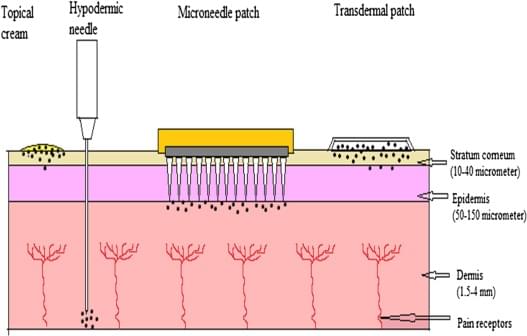Circa 2019 face_with_colon_three
The most widely used methods for transdermal administration of the drugs are hypodermic needles, topical creams, and transdermal patches. The effect of most of the therapeutic agents is limited due to the stratum corneum layer of the skin, which serves as a barrier for the molecules and thus only a few molecules are able to reach the site of action. A new form of delivery system called the microneedles helps to enhance the delivery of the drug through this route and overcoming the various problems associated with the conventional formulations. The primary principle involves disruption of the skin layer, thus creating micron size pathways that lead the drug directly to the epidermis or upper dermis region from where the drug can directly go into the systemic circulation without facing the barrier. This review describes the various potential and applications of the microneedles. The various types of microneedles can be fabricated like solid, dissolving, hydrogel, coated and hollow microneedles. Fabrication method selected depends on the type and material of the microneedle. This system has increased its application to many fields like oligonucleotide delivery, vaccine delivery, insulin delivery, and even in cosmetics. In recent years, many microneedle products are coming into the market. Although a lot of research needs to be done to overcome the various challenges before the microneedles can successfully launch into the market.
